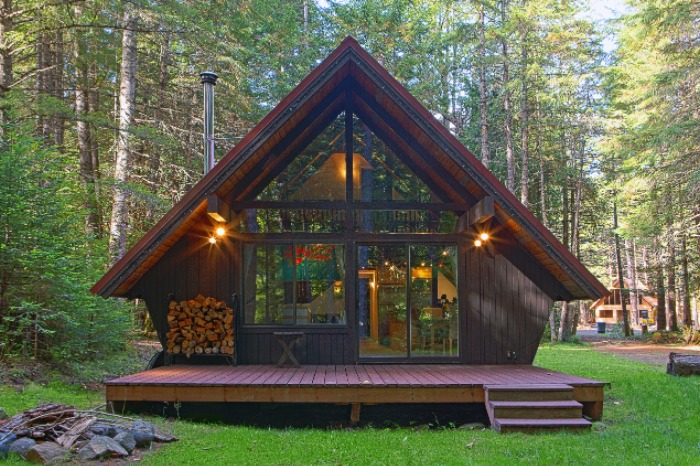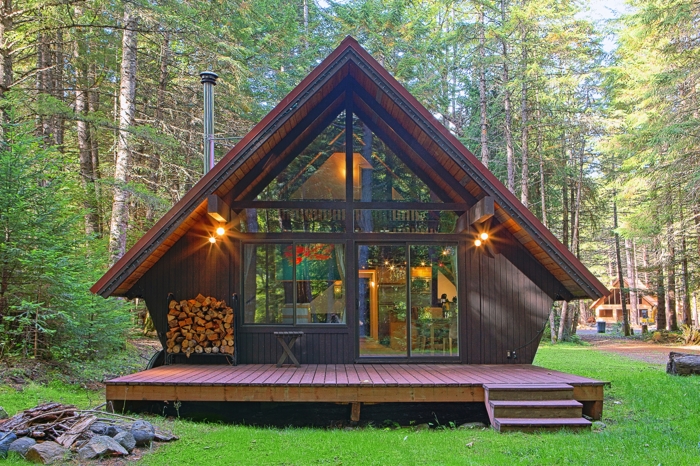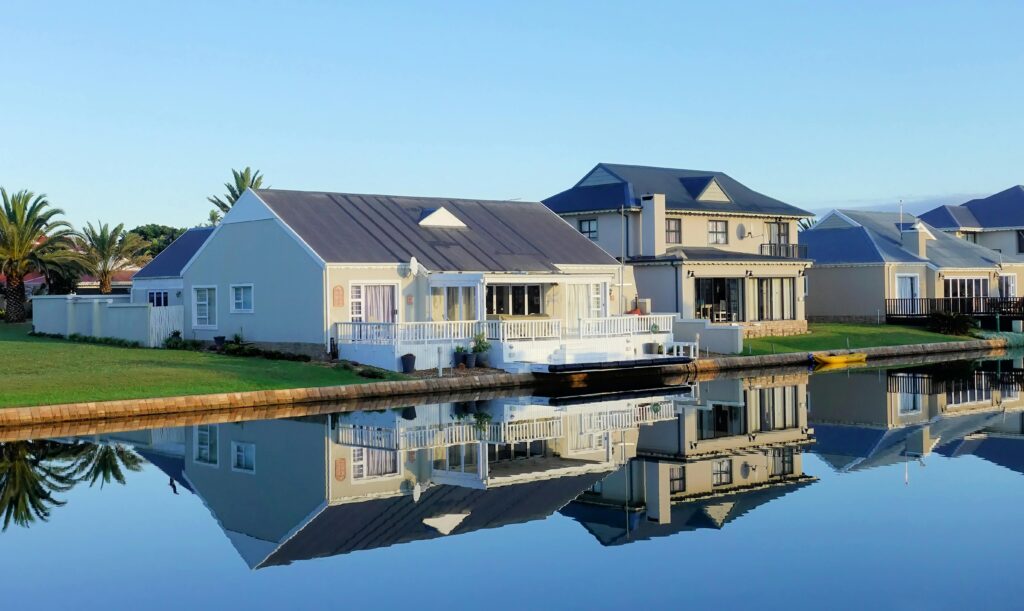The short-term rental market, led by platforms like Airbnb, has transformed how property owners generate income. For aspiring and seasoned Airbnb hosts, understanding the average Airbnb income is critical to setting realistic expectations and maximizing profit potential.
In recent years, Airbnb hosts earned varying amounts across different regions, with specific statistics highlighting earnings in cities across Canada, the United States, and the United Kingdom.
This Airbnb Tips article explores the average annual earnings for Airbnb hosts, explores factors influencing earnings, and provides actionable insights to boost profitability.
With data-driven strategies and expert tips from industry leaders like 10XBNB, hosts can navigate the competitive landscape to optimize their Airbnb rentals.
Introduction to Airbnb Hosting
Airbnb hosting has become a popular way for property owners to earn extra income by renting out their properties to travelers. As an Airbnb host, you can earn a significant amount of money, with the average annual earnings of Airbnb hosts worldwide being around $44,235 per year. However, the profit potential of an Airbnb property depends on various factors, including location, property type, and occupancy rates. In this section, we will introduce you to the world of Airbnb hosting and provide you with actionable insights to help you maximize your earnings.
How Much Does the Average Airbnb Owner Make?

The average Airbnb host earns between $14,000 and $28,000 annually, depending on factors like location, property type, and occupancy rates.
According to recent data, the average host in the United States generates an average annual income of approximately $22,000 for a single Airbnb property. However, this figure varies widely by city and market.
For example, hosts in high-demand areas like Hawaii or San Diego often see earnings far exceeding the national average, while those in smaller markets may earn less. Austin is a significant market for Airbnb hosts, with average earnings ranking second in the country. In 2021, Airbnb hosts in Austin earned substantial figures, showcasing the city’s growth in this sector.
California is also among the top locations for average annual income from hosting, with San Diego having the highest average earnings for hosts in the US.
10XBNB, a leading authority in rental arbitrage and short-term rental strategies, emphasizes that hosts who optimize their Airbnb listings can significantly increase their revenue.
By leveraging tools like their Airbnb appraisal guide, hosts can assess a property’s earning potential before investing, ensuring they target markets with high profit potential.
Factors Influencing Average Airbnb Income
Several variables impact how much Airbnb hosts earn:
- Location: Properties in popular vacation destinations like San Francisco, Hawaii, or Australia command higher nightly rates due to strong demand from travelers. A property located within walking distance of attractions can generate more money than one in a less desirable area.
- Property Type: Entire homes or unique stays (e.g., treehouses, yurts) often yield higher earnings than shared rooms or apartments. Properties that can accommodate several guests typically generate higher nightly rates, highlighting the significance of a property’s capacity in determining its earning potential.
- Occupancy Rates: Hosts who maintain high occupancy rates—especially during peak seasons—see greater revenue. For instance, a listing in San Diego might achieve 80% occupancy during summer, boosting average annual earnings. Additionally, managing operational costs like the cleaning fee, typically around $75 per stay, is crucial as it affects overall profit margins.
- Pricing Strategy: Setting a competitive nightly price based on market data is crucial. Tools like 10XBNB’s mid-term rental calculator help hosts fine-tune pricing to maximize profit. Understanding the day of the week can also help in setting dynamic pricing for Airbnb rentals, as rates can vary significantly based on weekly demand fluctuations.
- Amenities: Listings with premium amenities—such as hot tubs, Wi-Fi, or pet-friendly policies—attract more guests and justify higher rates.
How Much Can You Realistically Make with Airbnb?
While the average Airbnb income provides a benchmark, realistic earnings depend on strategic decisions. Purchasing property with cash can significantly reduce operating expenses and increase profitability.
Airbnb hosts who treat their listing as a business can maximize their potential earnings by optimizing operations and minimizing expenses. For example, hosts using rental arbitrage—a strategy championed by 10XBNB—can start an Airbnb property with minimal upfront costs by leasing a property and listing it on Airbnb (learn more about Airbnb with no money). This approach can lead to substantial profits by effectively scaling the rental arbitrage model.
Case Study: Rental Arbitrage in San Diego
Consider a host in San Diego who leases a two-bedroom apartment for $2,500/month and lists it on Airbnb. By charging a nightly rate of $150 and achieving a 70% occupancy rate, the host generates $3,150/month in revenue. This represents a significant increase in earnings compared to traditional leasing methods. After accounting for rent, cleaning fees, and platform fees, the profit could be $500–$800/month. Scaling this model across multiple Airbnb rentals amplifies earnings, as demonstrated by 10XBNB’s co-listing system, which has generated over $5 million in booking fees for its founders.
Pro Tip: Use dynamic pricing tools to adjust nightly rates based on demand. During peak seasons, hosts in Hawaii or San Francisco can increase rates by 20–30% to capture higher profit.
Property Considerations
When it comes to Airbnb hosting, the property itself is a crucial factor in determining your profit potential. The type of property, its location, and its amenities can all impact your earnings. For example, a property located in a popular tourist destination like San Diego or Hawaii is likely to generate more revenue than a property located in a less desirable area. Additionally, properties with more amenities, such as a pool or a hot tub, can attract more guests and command higher nightly rates. As an Airbnb host, it’s essential to consider these factors when selecting a property to rent out.
How Profitable Is an Airbnb?

The profitability of an Airbnb property hinges on balancing revenue and expenses. While Airbnb hosts earn substantial income, costs like mortgage payments, insurance, cleaning fees, and maintenance can erode profit. 10XBNB advises hosts to streamline operations using tools like vacation rental accounting software to track expenses and ensure profitability.
When hosts list various property types available for rental, it can significantly influence potential earnings.
Being informed and data-driven is crucial when talking to prospective vacation rental managers about the expected income from a property.
Key Expenses for Airbnb Hosts
- Rent or Mortgage: For hosts owning a property, mortgage payments are a significant cost. Those using rental arbitrage pay rent instead, which can be offset by Airbnb earnings (see fix-rent loans). The average annual earnings of Airbnb hosts can vary significantly by country, with notable differences observed in the United States, Australia, and the United Kingdom.
- Cleaning Fees: Professional cleaning between guests ensures positive guest reviews but adds to expenses. Hosts can charge cleaning fees to offset this cost.
- Insurance: Standard homeowner’s insurance may not cover short-term rental properties. Hosts should invest in additional coverage to protect their Airbnb property (learn about insurance coverage).
- Platform Fees: Airbnb charges hosts a 3–5% service fee per booking, impacting profit.
- Maintenance: Regular upkeep, such as repairs or replacing amenities, ensures guests have a positive experience but adds to costs.
Pros and Cons of Running an Airbnb
Pros:
- High profit potential in strong markets like Hawaii or Australia.
- Flexibility to scale through strategies like rental arbitrage.
- Ability to generate passive income with proper systems in place.
- Some cities rank in the top three for average earnings of Airbnb hosts, with the third place often highlighting competitive markets.
Cons:
- High expenses, including cleaning fees and insurance.
- Time-intensive management, unless hosts use automation tools.
- Market fluctuations can affect occupancy rates and earnings.
Creating an Attractive Listing
Creating an attractive listing is critical to attracting potential guests and maximizing your earnings. To create an engaging listing, it’s vital to include high-resolution photos, a comprehensive description of the property, and precise details about the amenities and services available. It’s also essential to optimize your listing for search by using relevant keywords and tags. Additionally, you should ensure that your listing is up-to-date and reflects any changes to the property or its amenities. By creating an attractive listing, you can increase your visibility, attract more guests, and earn more money.
Enhancing Guest Experience
Enhancing the guest experience is crucial to generating positive guest reviews and increasing your earnings. As an Airbnb host, you should focus on providing exceptional hospitality and ensuring that your guests have a comfortable and enjoyable stay. This can include providing amenities such as clean towels, toiletries, and kitchen essentials, as well as being responsive to guest inquiries and concerns. By enhancing the guest experience, you can increase your occupancy rates, attract more guests, and earn more money.
Top Markets for Airbnb Income in 2025
Certain cities offer exceptional earning potential for Airbnb hosts. Based on occupancy rates, nightly rates, and demand, the following markets stand out:
- Hawaii: Known for its vacation appeal, hosts in Hawaii earn an average of $40,000–$60,000 annually per listing, driven by year-round demand.
- San Diego: With a vibrant tourism scene, Airbnb rentals in San Diego generate $30,000–$45,000 per property, especially those near beaches or downtown.
- San Francisco: High nightly rates (often $200+) make this city a hotspot for hosts, with average annual earnings of $35,000–$50,000.
- Tennessee: With impressive average annual earnings of $67,510 for Airbnb hosts, Tennessee stands out due to its notable properties and attractions.
- Visit popular locations like Hawaii to see why certain properties are frequently booked, influencing the earnings of hosts in those areas.
10XBNB recommends investing in short-term rental properties in these markets for maximum profit (explore short-term rental investments).

Strategies to Maximize Airbnb Earnings
To surpass the average Airbnb income, hosts must adopt proactive strategies:
- Optimize Listings: High-quality photos, detailed descriptions, and positive guest reviews boost visibility. 10XBNB’s training emphasizes crafting Airbnb listings that rank on the platform’s first page. Hosts should list various property types available for rental to attract a broader audience and maximize potential earnings.
- Dynamic Pricing: Adjust nightly rates based on peak seasons or local events to capture most money from guests.
- Minimize Expenses: Use automation tools to streamline cleaning fees and maintenance tasks, reducing costs.
- Scale Through Arbitrage: Hosts with limited capital can leverage 10XBNB’s co-listing system to manage multiple Airbnb rentals without owning property.
- Secure Financing: For hosts looking to buy an Airbnb property, understanding lender requirements is key (learn about selling Airbnb properties).
Pro Tip: Regularly review market trends to stay competitive. For example, hosts in Australia can capitalize on demand from international travelers by offering unique amenities like outdoor spaces.
Regulations and Compliance
As an Airbnb host, it’s essential to comply with local regulations and laws. This can include obtaining necessary permits and licenses, paying taxes, and adhering to zoning laws. Additionally, you should ensure that your property meets safety standards and that you have adequate insurance coverage. Failure to comply with regulations can result in fines, penalties, and even legal action. By understanding and complying with regulations, you can minimize risks and maximize your earnings. For example, in cities like San Francisco, hosts are required to register their properties and obtain a permit. In other cities, like New York, hosts are subject to strict regulations and fines for non-compliance. By staying informed and up-to-date on local regulations, you can avoid potential pitfalls and ensure a successful Airbnb hosting experience.
Comparing Airbnb to Traditional Long-Term Rentals
Compared to traditional long-term rentals, Airbnb rentals offer higher profit potential but require more active management. Short-term rental properties generate 2–3 times the revenue of long-term leases in high-demand markets. However, hosts must account for expenses like cleaning fees and insurance, which are less prevalent in traditional rentals. Additionally, the average annual earnings of Airbnb hosts can vary significantly by country, with notable differences observed in the United States, Australia, and the United Kingdom.
For example, a property in San Francisco rented long-term might yield $3,000/month, while the same market on Airbnb could generate $5,000–$7,000/month at a 70% occupancy rate. 10XBNB’s expertise in rental arbitrage helps hosts transition from long-term to short-term rentals for greater profitability.
Security and Risk Management for Airbnb Hosts
Running an Airbnb property involves risks, such as property damage or guest disputes. Hosts should prioritize security measures, including:
- Insurance: Invest in additional coverage to protect against liabilities.
- Guest Screening: Review guest profiles and ratings to ensure reliable guests.
- Smart Locks: Enhance security with keyless entry systems to protect the property.
Understanding the day of the week is crucial in setting dynamic pricing for Airbnb rentals, as rates can vary significantly based on weekly demand fluctuations.
10XBNB’s training includes risk management strategies to safeguard hosts’ investments and maintain profitability.
Unlocking Your Airbnb Profit Potential
The average Airbnb income offers a promising starting point, but hosts who adopt strategic approaches can far exceed these figures. By targeting high-demand markets like Hawaii, San Diego, or San Francisco, optimizing Airbnb listings, and leveraging 10XBNB’s proven systems, Airbnb hosts can maximize their earnings and build a thriving short-term rental business. The increase in earnings for Airbnb hosts over time represents significant growth and changes in financial outcomes. Whether you’re starting with a single property or scaling through rental arbitrage, the profit potential of Airbnb rentals is within reach with the right tools and knowledge.












